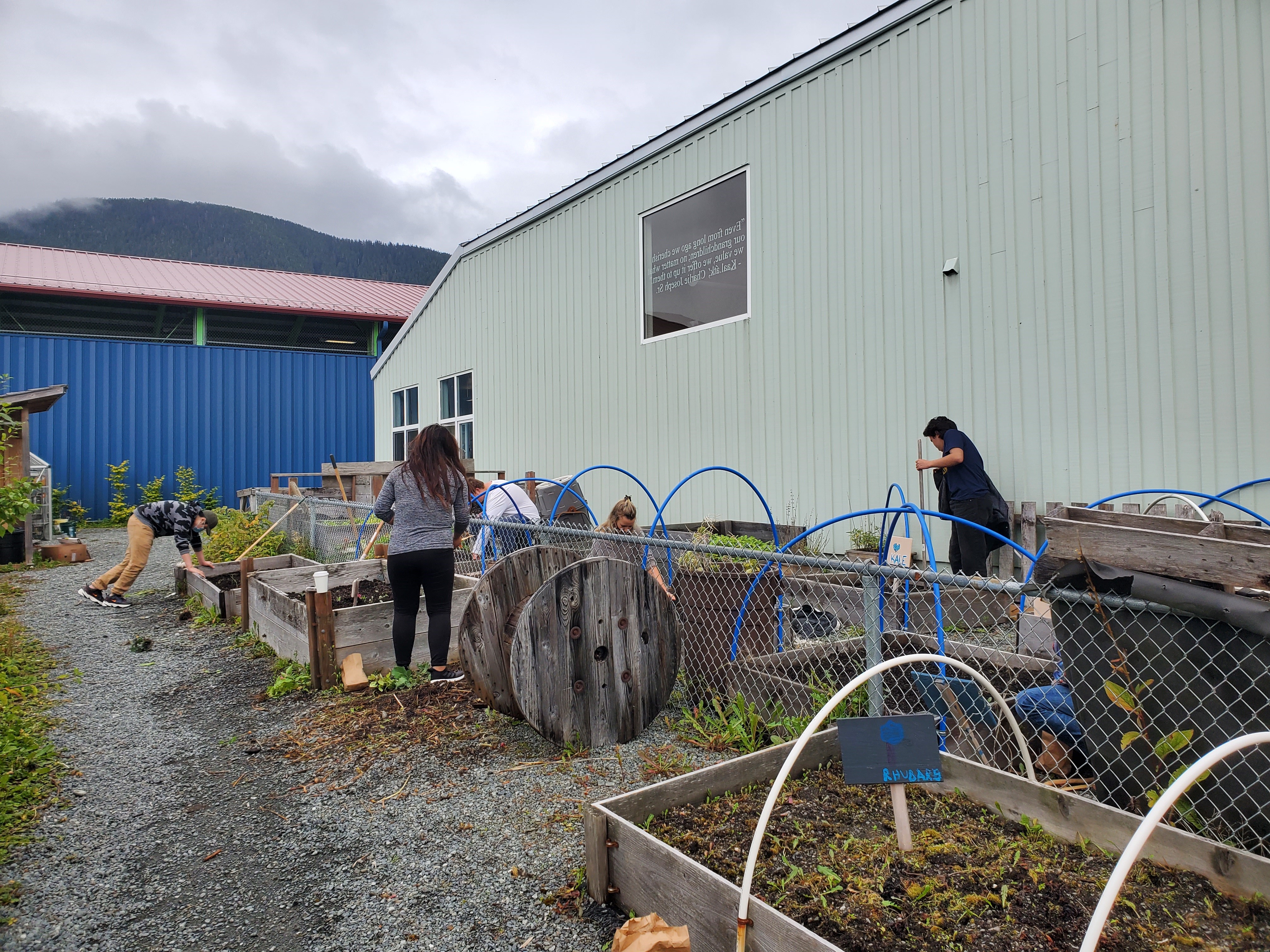
The Sitka School District’s Pacific High School is one of two schools in Alaska to receive a Farm To School (F2S) grant from the USDA Food and Nutrition Service. The grant is for $50,000 and will be used to improve Pacific High School’s edible garden.
The USDA Farm To School grant program in 2021-22 will support 176 grant-winners from around the country, serving 6,800 schools and more than 1.4 million students. The other Alaska site to receive a grant was the Cordova School District, through its nonprofit partner the Copper Valley Watershed Project.
 According to the USDA’s list of Farm to School grants and their project descriptions, “The Pacific High School (PHS) Edible Garden project will support the installation of an edible garden, adjacent to both PHS and Baranof Elementary School (BES). PHS is a school of choice, serving high-needs students who have been underserved in the traditional system, and BES serves all of the district’s grades K-1 students. The edible garden will be used as an experiential outdoor classroom and integrated into both schools’ curriculum. Food produced will supply the Pacific High School meal program and the Sitka Tribe of Alaska summer meal program, in addition to being consumed as part of school and partner agency learning experiences.”
According to the USDA’s list of Farm to School grants and their project descriptions, “The Pacific High School (PHS) Edible Garden project will support the installation of an edible garden, adjacent to both PHS and Baranof Elementary School (BES). PHS is a school of choice, serving high-needs students who have been underserved in the traditional system, and BES serves all of the district’s grades K-1 students. The edible garden will be used as an experiential outdoor classroom and integrated into both schools’ curriculum. Food produced will supply the Pacific High School meal program and the Sitka Tribe of Alaska summer meal program, in addition to being consumed as part of school and partner agency learning experiences.”
Pacific High School principal Mandy Summer said the grant will be used in several ways.
“The F2S grant is a total of $50,000 of funding for one year which we intend to use to hire a school gardener,” Summer wrote in an email. “This person will be responsible for overall planning and maintenance of the school garden, organizing a PHS garden committee, creating a sustainability plan that will address future maintenance needs, and developing curricular resources to assist teachers (PHS and Baranof) in leading garden experiences with their students. Until now, PHS has not had a staff member solely dedicated to working in the garden and developing garden resources and activities, which has slowed the growth of our Farm to Table program. It is our hope that the funding provided though the Farm to School grant will provide the means for us to grow produce year-round for our school breakfast and lunch program, and expand curricular resources to enable more students to have learning experiences in the garden.”
When she was a teacher at the school, before she was promoted to principal, Summer helped create the school garden a decade ago. In recent years, Pacific High School hosted MOBY the Mobile Greenhouse (a portable greenhouse built on a trailer that travels to different communities around Southeast Alaska) and the Pacific Planters school garden club sold plant starts this spring.
“Pacific High has been teaching gardening classes for 10 years now and expanding our garden space behind the school for six,” Summer wrote. “This grant will involve Baranof through the development of elementary-aged curricular resources by the school gardener, in partnership with teachers from Baranof who are interested in getting their students out in the garden. We purchased a 24×48 (foot) greenhouse last year with funding from a partnership grant with Sitka Tribe of Alaska. However before we can put the greenhouse up, we need to excavate for the foundation, level the site, and put in some French drains. This is estimated to cost approximately $25,000, which we will do (through) a fundraising campaign for this fall.”






You must be logged in to post a comment.